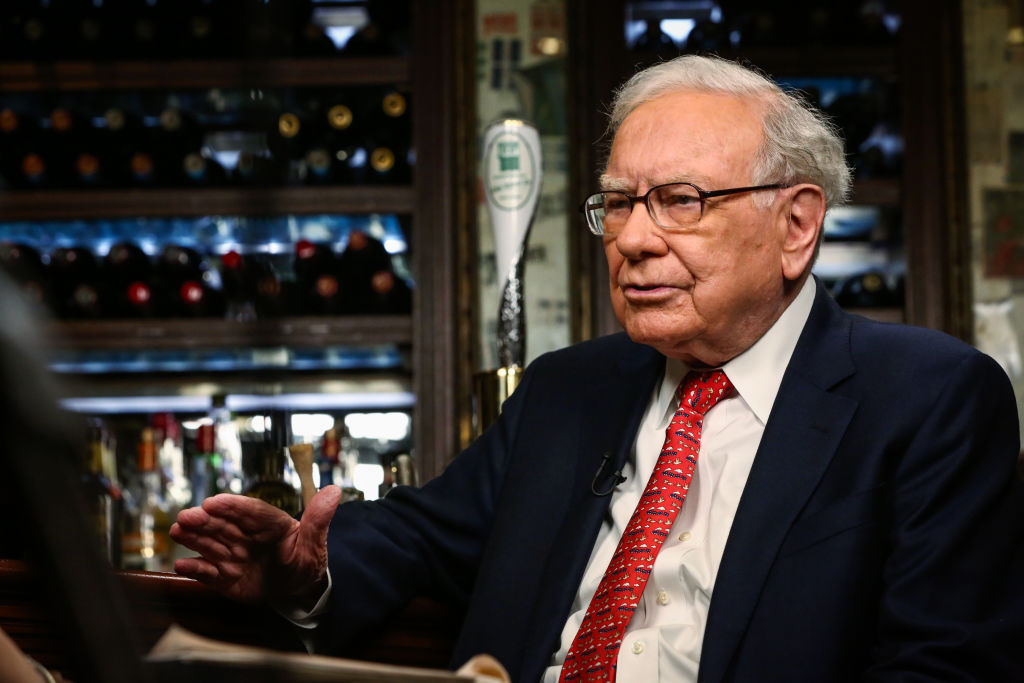Ryan Cohen: the “meme king” who sparked a frenzy
Ryan Cohen was credited with saving a clapped-out videogames retailer with little more than a knack for whipping up a social-media storm. But his latest intervention has backfired.

Get the latest financial news, insights and expert analysis from our award-winning MoneyWeek team, to help you understand what really matters when it comes to your finances.
You are now subscribed
Your newsletter sign-up was successful
Want to add more newsletters?

Twice daily
MoneyWeek
Get the latest financial news, insights and expert analysis from our award-winning MoneyWeek team, to help you understand what really matters when it comes to your finances.

Four times a week
Look After My Bills
Sign up to our free money-saving newsletter, filled with the latest news and expert advice to help you find the best tips and deals for managing your bills. Start saving today!
The extraordinary rise and fall of Bed Bath & Beyond, the latest hyped US “meme stock”, has had terrible real-world consequences – the firm’s CFO, Gustavo Arnal, was found dead at the foot of his Manhattan building last week, having apparently jumped. His death is a reminder that “there’s more on the line” than a stock price, says The New York Times.
But the episode has also shone a spotlight on the activities of “meme baron” Ryan Cohen (pictured) – a billionaire investor with a large following of amateur traders and a frightening ability to move markets due to the unshakeable faith of some of his acolytes.
Ryan Cohen made $68m as others lost their shirts
Cohen, 37, is the chair of GameStop – the clapped-out videogame store chain at the centre of the January 2021 meme stock frenzy – and he clearly hoped to pull off a similar coup at the struggling homeware retailer.
MoneyWeek
Subscribe to MoneyWeek today and get your first six magazine issues absolutely FREE

Sign up to Money Morning
Don't miss the latest investment and personal finances news, market analysis, plus money-saving tips with our free twice-daily newsletter
Don't miss the latest investment and personal finances news, market analysis, plus money-saving tips with our free twice-daily newsletter
At the start of last month, Bed Bath & Beyond was already one of the most discussed stocks on Reddit’s WallStreetBets social-media channel and shares began surging on reports of Cohen’s involvement, says the Financial Times. But when, on 15 August, he filed documents detailing the prior purchase of a large number of call options on the stock, things went into overdrive. Shares shot up 30% in a day, only to start plunging on 17 August when Cohen disclosed he was selling his entire stake.
By the time he’d fully closed his position, pocketing some $68m, Bed Bath & Beyond had suffered the worst one-day pullback in its history. Some traders got out in time. A 20-year-old student at the University of Southern California reportedly crystallised a $110m gain after the shares quadrupled in a month.
Many others lost their shirts, but that didn’t faze loyalists. One trader wrote that it just “wasn’t like him” to “pull the rug out” from under his followers. “Not gonna lie… did panic… but bought more. I have faith in him and this will make sense soon,” said another. But a class-action lawsuit has alleged a “pump and dump” scheme, says the Daily Mail, claiming that “a majority shareholder” had approached the CFO with “a plan to control shares of the company” so both could profit. A week later Arnal was dead – leaving Cohen “to face the music”.
Not much is known about the early life of Cohen – beyond the fact that he was raised in Montreal, never attended college, and cites his father, Ted, who ran a glassware importing business, as his chief mentor. He struck business gold young, starting Chewy – an online e-commerce business devoted to pets – in 2011, when he was in his mid-20s. Cohen had to work hard to persuade investors to bite – most couldn’t get past the two hurdles of competing head-on with Amazon and the failure of Pets.com after the dotcom crash. But he rode the boom in fancy pet goods and scaled up the business, making headlines when he sold to PetSmart for $3.35bn – then, “the largest e-commerce acquisition ever”.
The man with the tendies
Given that record, it was no surprise that GameStop embraced Cohen when he bought a 13% stake in 2020 and joined its board in 2021, says the FT. “Reddit traders, already interested in the stock because of its heavy interest from short sellers and its low price, saw him as a harbinger of an ecommerce turnaround.”
In fact, there’s not much evidence he changed the fundamentals there. What mattered was “his social-media savvy”. Traders felt a sense of “camaraderie” with Cohen, partly because he “hodl’d” his GameStop shares – held on for dear life – in the “mythologised fight” against short sellers. “He was the meme king, the silverback ape, the man with the tendies” who was “supposed to end Wall Street’s profiteering, not join it”, says Vice. (“Tendies” is a slang term for gains or profits.) Instead, he cashed in, leaving many followers feeling betrayed.
Get the latest financial news, insights and expert analysis from our award-winning MoneyWeek team, to help you understand what really matters when it comes to your finances.
Jane writes profiles for MoneyWeek and is city editor of The Week. A former British Society of Magazine Editors (BSME) editor of the year, she cut her teeth in journalism editing The Daily Telegraph’s Letters page and writing gossip for the London Evening Standard – while contributing to a kaleidoscopic range of business magazines including Personnel Today, Edge, Microscope, Computing, PC Business World, and Business & Finance.
-
 ISA fund and trust picks for every type of investor – which could work for you?
ISA fund and trust picks for every type of investor – which could work for you?Whether you’re an ISA investor seeking reliable returns, looking to add a bit more risk to your portfolio or are new to investing, MoneyWeek asked the experts for funds and investment trusts you could consider in 2026
-
 The most popular fund sectors of 2025 as investor outflows continue
The most popular fund sectors of 2025 as investor outflows continueIt was another difficult year for fund inflows but there are signs that investors are returning to the financial markets
-
 VICE bankruptcy: how did it happen?
VICE bankruptcy: how did it happen?Was the VICE bankruptcy inevitable? We look into how the once multibillion-dollar came crashing down.
-
 What is Warren Buffett’s net worth?
What is Warren Buffett’s net worth?Warren Buffett, sometimes referred to as the “Oracle of Omaha”, is considered one of the most successful investors of all time. How did he make his billions?
-
 Kwasi Kwarteng: the leading light of the Tory right
Kwasi Kwarteng: the leading light of the Tory rightProfiles Kwasi Kwarteng, who studied 17th-century currency policy for his doctoral thesis, has always had a keen interest in economic crises. Now he is in one of his own making
-
 Yvon Chouinard: The billionaire “dirtbag” who's giving it all away
Yvon Chouinard: The billionaire “dirtbag” who's giving it all awayProfiles Outdoor-equipment retailer Yvon Chouinard is the latest in a line of rich benefactors to shun personal aggrandisement in favour of worthy causes.
-
 Johann Rupert: the Warren Buffett of luxury goods
Johann Rupert: the Warren Buffett of luxury goodsProfiles Johann Rupert, the presiding boss of Swiss luxury group Richemont, has seen off a challenge to his authority by a hedge fund. But his trials are not over yet.
-
 Profile: the fall of Alvin Chau, Macau’s junket king
Profile: the fall of Alvin Chau, Macau’s junket kingProfiles Alvin Chau made a fortune catering for Chinese gamblers as the authorities turned a blind eye. Now he’s on trial for illegal cross-border gambling, fraud and money laundering.
-
 The rise of Gautam Adani, Asia’s richest man
The rise of Gautam Adani, Asia’s richest manProfiles India’s Gautam Adani started working life as an exporter and hit the big time when he moved into infrastructure. Political connections have been useful – but are a double-edged sword.
-
 Ron Johnson: the retail king’s quest for redemption
Ron Johnson: the retail king’s quest for redemptionProfiles Ron Johnson’s spell at JCPenney, following his triumph at Apple, was a disaster. Now, his latest attempt to rescue his reputation has just crashed into bankruptcy.